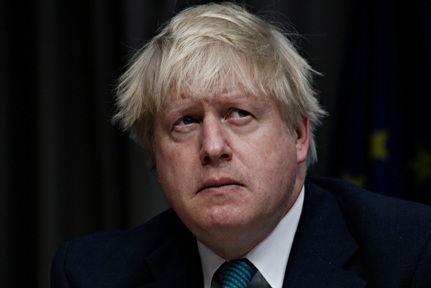Boris Johnson's care cap change to make poor pay more rejected by Lords
Prime minister Boris Johnson’s last minute change to a care cap that would have forced poorer people to pay more, has been rejected by the House of Lords.

Peers voted 198-158 for an amendment to the Health and Care Bill, to ensure the amount councils pay towards care will actually count towards an individual’s £86,000 cap on care costs.
The proposed adult social care cap meant people will not have to pay more than £86,000 over their lifetime for care fees from October 2023. However, Mr Johnson’s controversial ‘Clause 155’ meant anything councils pay towards people’s care would not count towards the cap.
Peers voted against the clause which would have led to people with £110,000 in assets losing 78 per cent of their wealth to pay for care with the care cap, while those with assets worth half a million lost only 17 per cent, according to a report by the Institute for Fiscal Studies and Health Foundation.
’Hastily scraped together, ill-thought through mish-mash’
Labour’s Baroness Wheeler told peers in the House of Lords last night (7 March): “The short Clause 155 we have before us on the Government’s proposals is a last-minute, hastily scraped together, ill-thought-through mishmash of subsections added to an essentially NHS Bill after its Commons Committee had finished, which was then bombarded through that House without any time for close scrutiny and debate.”
Charities like Alzheimer’s Society have welcomed the peers’ victory over the PM.
A spokesperson for dementia charity Alzheimer’s Society has said clause 155 “watered down” the government’s plan for a cap on care costs by offering “less protection to people affected by dementia”.
Caroline Abrahams, Age UK’s charity director said: “At Age UK we are really pleased, and also relieved, that the House of Lords has rejected the Government’s attempt to undermine its own care cap policy tonight.
“I would like to thank every Peer who voted against the Government’s amendment (clause 155). If it had passed, it would have taken the cap beyond the grasp of older people with few or modest assets, poorer places and disabled people of working age.
“This would have been an extraordinarily unfair and regressive outcome and the House of Lords quite rightly said ‘no’.”
The peers’ decision to vote down the clause means the Prime Minister will either ditch the plan or ask MPs to vote again in the House of Commons on the change to force it through and overrule the House of Lords.
Ms Abrahams added: “Now it’s up to the Government to decide what to do. We sincerely hope they choose not to try to reinstate this ill-conceived amendment in the House of Commons.”
Latest News
 29-Jul-24
Dementia Bus gives carehome.co.uk staff insight into life with dementia
29-Jul-24
Dementia Bus gives carehome.co.uk staff insight into life with dementia
 01-Mar-24
Find out the top care homes in 2024
01-Mar-24
Find out the top care homes in 2024
 21-Mar-23
UK's top care homes in 2023 revealed
21-Mar-23
UK's top care homes in 2023 revealed
 03-Jan-23
carehome.co.uk launches free care helpline
03-Jan-23
carehome.co.uk launches free care helpline
 13-Dec-22
5 mins with Emily Whitehurst, chief operating officer for Constantia Healthcare
13-Dec-22
5 mins with Emily Whitehurst, chief operating officer for Constantia Healthcare